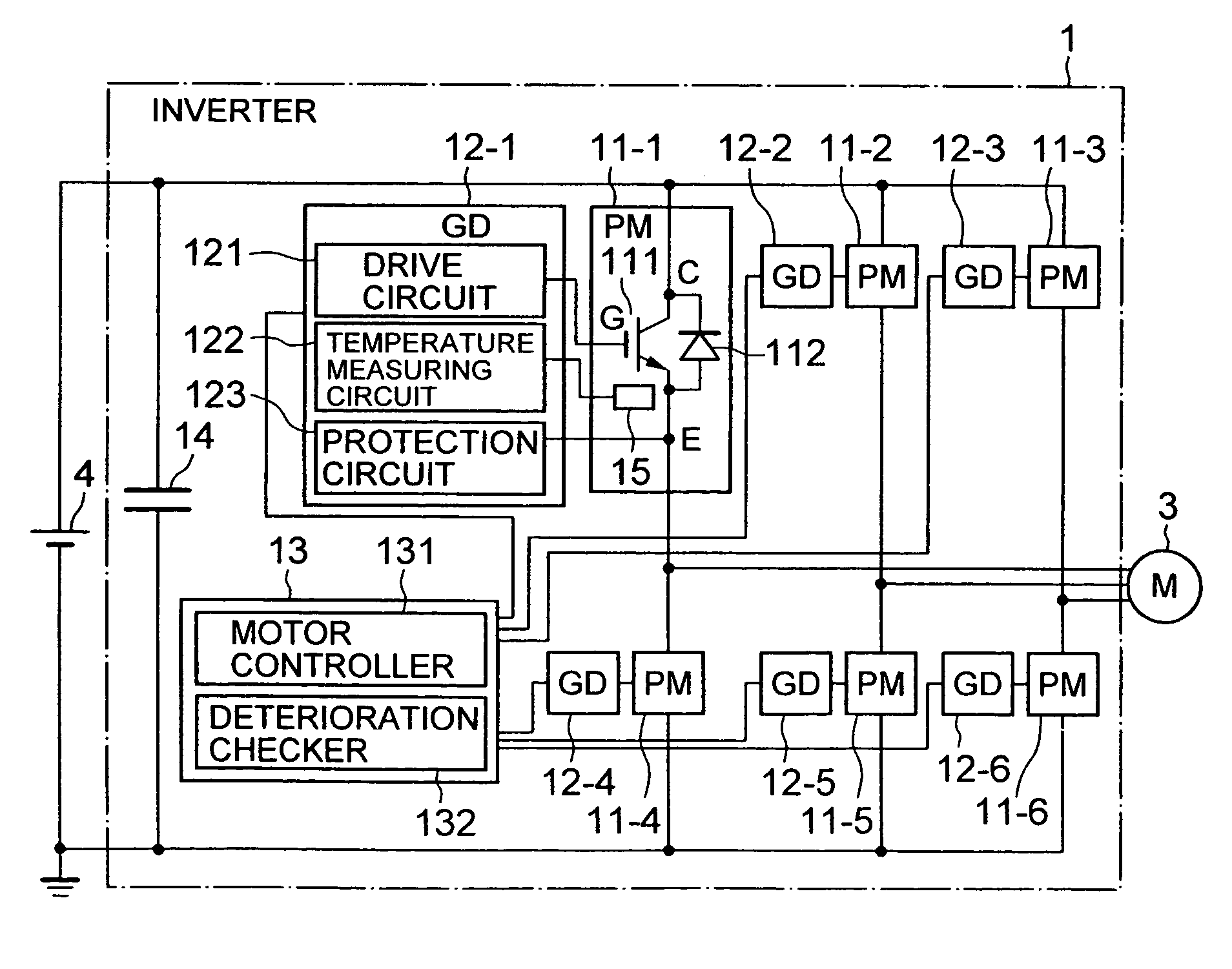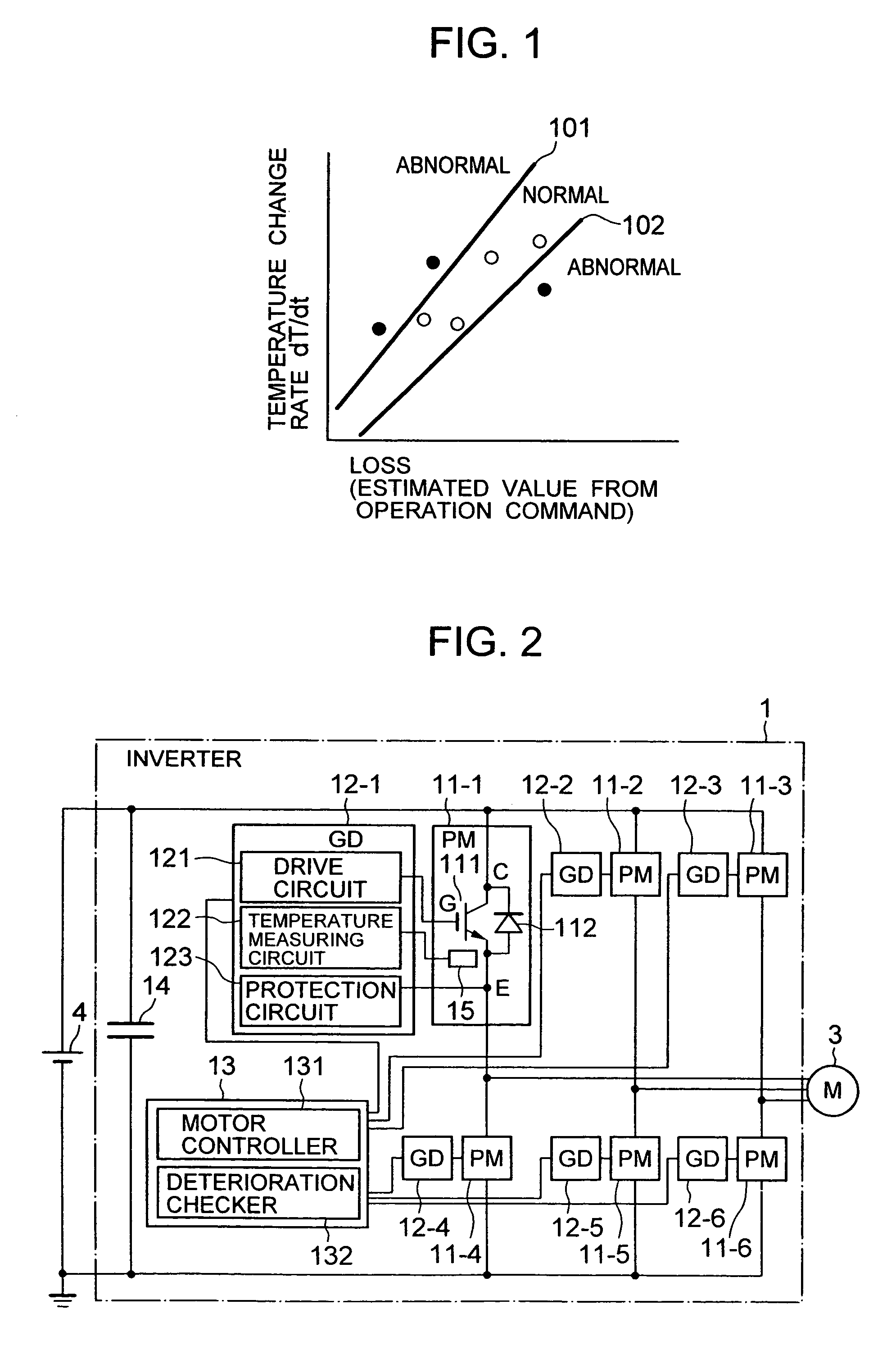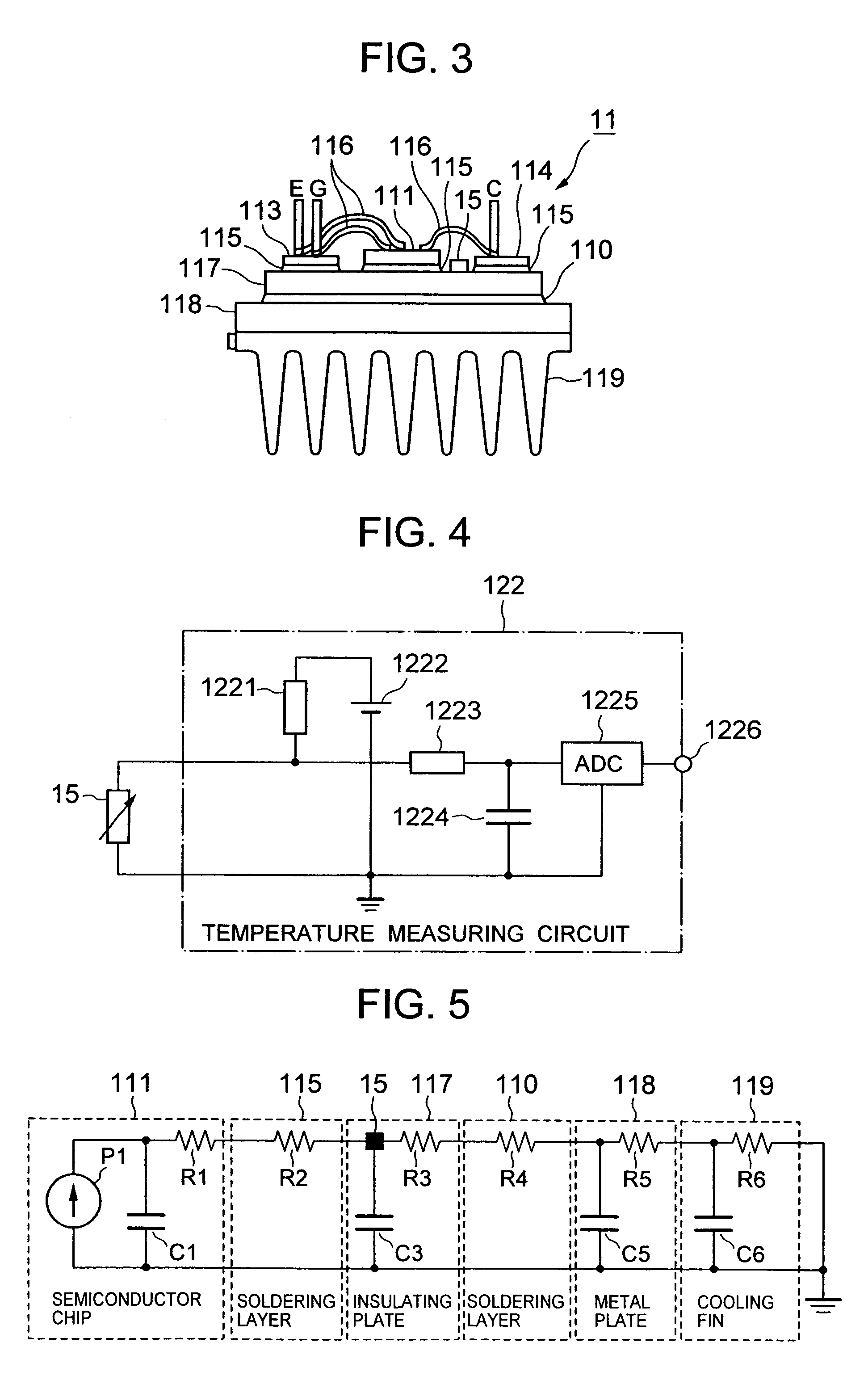Fault detection system
a fault detection and fault technology, applied in the field of fault detection systems, can solve the problems of increasing the reliability of a semiconductor, destroying a semiconductor module, and preventing the system from working, and achieve the effect of simple structur
- Summary
- Abstract
- Description
- Claims
- Application Information
AI Technical Summary
Benefits of technology
Problems solved by technology
Method used
Image
Examples
first embodiment
[0043]Referring to FIG. 2, the configuration of a fault detection system of semiconductor modules according to the present invention that is applied to an inverter will be described. An inverter 1 in this embodiment comprises six semiconductor modules 11-1–11-6 each of which is a power module (PM), gate drive circuits (GD) 12-1–12-6, a control circuit 13, and a capacitor 14. This inverter transforms the power of a DC power supply 4 into a three-phase AC power to drive a motor 3.
[0044]The semiconductor module 11 comprises an insulated-gate bipolar transistor (IGBT) 111 and a diode 112, where C is the collector terminal, E is the emitter terminal, and G is the gate terminal. A temperature sense device 15 is attached to the semiconductor module 11. Although the detailed configuration of the semiconductor modules 11-2–11-6 is omitted, those modules have the same configuration as that of the semiconductor module 11-1.
[0045]The gate drive circuit (GD) 12 comprises a drive circuit 121 that...
seventh embodiment
[0086]FIG. 22 shows the configuration of an inverter 1 in the present invention. In each of six semiconductor modules 11′-1–11′-6, only an IGBT and a diode are installed but a temperature sense device 15 is not, and those modules are installed on a cooling unit 100 on which the temperature sense device 15 is installed. In addition, a temperature measuring circuit 122 is independent of a gate drive circuit 17′.
[0087]FIG. 23 is an external view of this semiconductor module 11′ and the cooling unit 100. The heat generated by the semiconductor modules 11′ is radiated into air by the cooling unit 100. The cooling unit 100 has the temperature sense device 15 installed. The temperature measuring circuit 122 measures the temperature using the signal sent from the temperature sense device 15. The control circuit 13 checks deterioration based on this temperature information. It is possible to detect deterioration because, in this embodiment, the temperature rise rate changes if any one of six...
PUM
 Login to View More
Login to View More Abstract
Description
Claims
Application Information
 Login to View More
Login to View More - R&D
- Intellectual Property
- Life Sciences
- Materials
- Tech Scout
- Unparalleled Data Quality
- Higher Quality Content
- 60% Fewer Hallucinations
Browse by: Latest US Patents, China's latest patents, Technical Efficacy Thesaurus, Application Domain, Technology Topic, Popular Technical Reports.
© 2025 PatSnap. All rights reserved.Legal|Privacy policy|Modern Slavery Act Transparency Statement|Sitemap|About US| Contact US: help@patsnap.com



